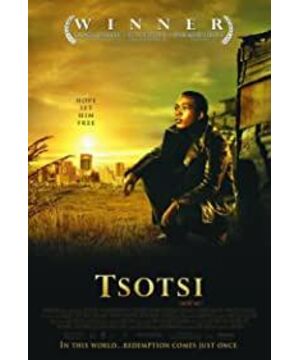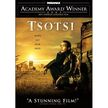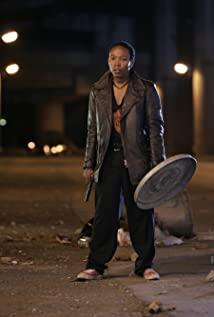After reading it, I still don't understand, why did Tsotsi take in that child? The plot seems too far-fetched.
After thinking about it, I believed that taking so much money to make a movie would not find a far-fetched plot. I thought and thought from the director's point of view. Maybe it's about Tsotsi's unfortunate childhood, AIDS mother and alcoholic father. He watched as the dog at home was kicked and maimed by his father, and was surviving on the ground. This child who had never felt the warmth of his family escaped and never came back.
He became a gangster, robbing and killing everything. But his first car snatch in the film wasn't for money. We saw that he didn't sell the car he got, as he usually does, but was still on the side of the road. Maybe, he just wanted to prove himself and resist the ridicule of others that he didn't grow up. That's it. Such a character of not admit defeat and reckless consequences has made a good preparation for the plot of him holding the child later. I am afraid that this idea has to benefit from my wife who studies psychology.
Tsotsi found a child in the car, and after some hesitation he took it home. Is it a conscience discovery? Can't bear it? I don't think this guy who kills without blinking, even a little manic tendencies, is for these reasons. If that was the case, he would just drive the car to a crowded place and put the child in the car.
As for why, I guess it's a bit complicated. On the one hand, it is his own dissatisfaction with his parents and his desire for family life, and on the other hand, he has an extravagant hope for childhood happiness. People with these thoughts are often dissatisfied with the status quo. Such people often attribute their misfortune to their birth. If I were born in a noble family, if I were born in a developed country, if I had a rich old man, if I... If you are dissatisfied with a certain small aspect, you will also have this very normal idea.
Tsotsi's hope is to have a happy family, a mother who holds him and a father who protects him. So when I saw the child that day, I just grabbed the car to prove that my impulse turned around. Let him divert his pursuit of childhood happiness. We often see in the film that he has regarded the child as his childhood self. In his heart, he longed to create a happy childhood for "himself", and he wanted to raise himself.
Most of the scenes in the film are about Tsotsi raising the child, including feeding Miriam with a gun, returning to the child's parents' house to rob money, and fetching toys. He is taking care of his children with the principles of the strong man he had learned in his upbringing, and the way he gets milk, money, and toys is violence. This is probably also a portrayal of life in the poor areas of South Africa.
At the same time, the film is still rendering the greatness of maternal love. Miriam's sentence "I want to give him a bath", and the determination on the child's mother's face made Tsotsi gradually understand his failure. Only material things can be obtained through violence, which is not the key to happiness. There is also a lack of love and care. Perhaps, the director wanted to express this idea to the people in the slums of Johannesburg.
The slums in the film are chaotic, but people’s desire to “normalize” can be felt in their conversations, although this is only deeply hidden and reluctant to express, and even a few bottles of wine can easily cover it up. But, it will still be in their hearts.
"Dignity is living a fucking decent life!" If there is a problem with survival, how can we talk about dignity? How to be more normal? Before scoffing at the criminality of the people here, address their survival first.
But as one of them, you can't blame your life on poverty and birth, but also think about your attitude towards life. Just like the lame beggar, the car has a license plate number and a Volkswagen logo on it. "Live to feel the sun". There are also wind chimes in Miriam's house, rusted iron pieces and multicolored glass.
Talking too much is too preachy. Personally, the highlight of the film is that Tsotsi's inner roles are swapped, Tsotsi's childhood, the child Tsotsi grabbed, Tsotsi, Tsotsi's father. Tsotsi's father, played by Tsotsi, took care of Tsotsi's childhood, played by the kid Tsotsi grabbed. In fact, Tsotsi found that he could only obtain material things by violence, and could not replace the love of his parents. Miriam and the beggar made Tsotsi understand that he was wrong in blaming his birth, parents, and poverty for the misfortune of his life. He needed his own redemption and rebirth. .
Some people say that the Chinese title translation is not good, but I think it is quite good. Because the director's focus is on the latter.
On a stormy night, Tsotsi kept running and the screen kept switching.
Blog: http://xiaogs.org/2008/12/21/309.html
View more about Tsotsi reviews









